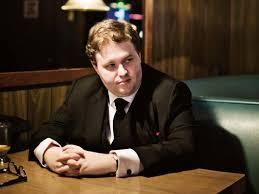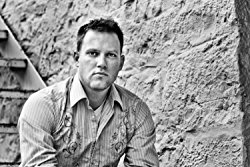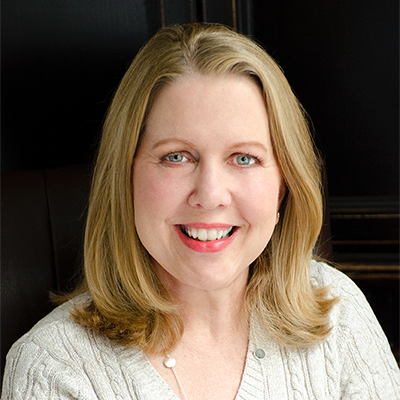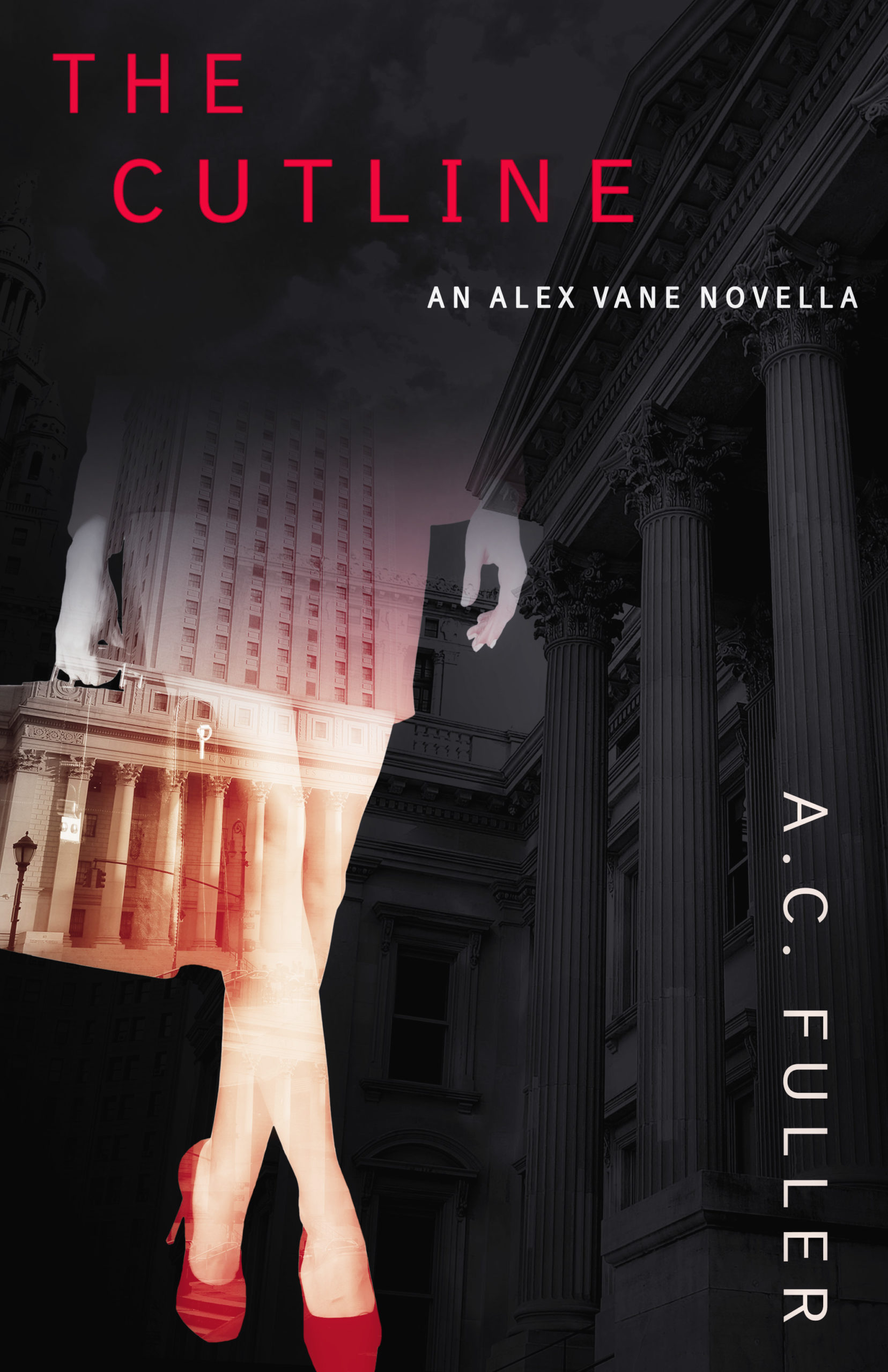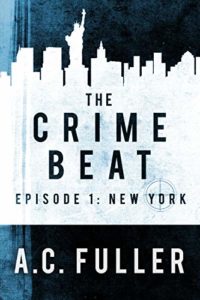 Kevin O’Brien
Kevin O’Brien
A few years ago I wondered whether there were any great thriller writers living in the Seattle area. I asked Google and my search led me to Kevin O’Brien, who writes keep-you-up-all-night thrillers that lean toward the terrifying and horrifying.
Mr. O’Brien is the author of fifteen novels, including many USA Today and New York Times bestsellers. He is one of the Seattle 7 Writers, a collective of bestselling, award-winning authors, dedicated to supporting literacy, writing and education. His most recent thriller, Unspeakable, was released last year, and he is hard at work on his next book, Tell Me You’re Sorry.
A.C.: I know you worked on the railroads when you started out as a writer. What was the biggest challenge you faced in the areas of work, family, or time management during this time? How did you deal with that challenge?
Kevin O’Brien: The screenwriter, Lawrence Kasdan (“The Big Chill”) was once asked if he had any advice for would-be screenwriters. “Don’t get a fallback job that you can fall back on,” he said (or something to that effect). I had no desire to be a railroad inspector for the rest of my life.
 So I never lost sight of my goal to be a working author. I had the perfect non-fallback job! It paid well and usually had flexible hours. I worked alone most of the time, and traveled throughout the Pacific Northwest. I’d spend hours driving from place to place, thinking about characters and plot points in my book. These were the days before the Internet; so the only distraction I had while staying four nights in someplace like Pasco, Washington was writing (or bad TV). A good portion of my first two books was composed in Best Westerns and Red Lions. Under these conditions, it was easy to discipline myself and set aside writing time. At home—with friends and other things distracting me—it was more of a challenge. So I got into the habit of writing late at night. The author, Terry Brooks, advised me not to quit my railroad job until I’d made enough money to live on for two years. In 1997, I sold my novel, ONLY SON, to the movies and Reader’s Digest. And that was when I quit the railroads (after 17 years). I’ve been writing full-time ever since. I still do most of my writing at night, which is the perfect time for composing thrillers.
So I never lost sight of my goal to be a working author. I had the perfect non-fallback job! It paid well and usually had flexible hours. I worked alone most of the time, and traveled throughout the Pacific Northwest. I’d spend hours driving from place to place, thinking about characters and plot points in my book. These were the days before the Internet; so the only distraction I had while staying four nights in someplace like Pasco, Washington was writing (or bad TV). A good portion of my first two books was composed in Best Westerns and Red Lions. Under these conditions, it was easy to discipline myself and set aside writing time. At home—with friends and other things distracting me—it was more of a challenge. So I got into the habit of writing late at night. The author, Terry Brooks, advised me not to quit my railroad job until I’d made enough money to live on for two years. In 1997, I sold my novel, ONLY SON, to the movies and Reader’s Digest. And that was when I quit the railroads (after 17 years). I’ve been writing full-time ever since. I still do most of my writing at night, which is the perfect time for composing thrillers.
A.C.: In a given book, roughly what percent of your time do you spend writing the first draft and what percentage of your time do you spend editing (including all rounds of editing)? Has this changed from your first couple of books to today?
Kevin O’Brien: Every time I sit down to write, I get into the groove by editing what I’ve written the night before. I might even go back to the beginning of that particular chapter and re-read/re-edit material until it’s polished. Then I start composing new stuff.
Later on down the line, when the book is almost finished, I’ll read and edit the entire manuscript—for pace, continuity, slow points, word repetition, etc. I think it’s safe to say, I spend one third of my time composing and two thirds rewriting, editing and fine-tuning. For my first two books, which weren’t thrillers, it was slightly different. I didn’t have an outline for those books. So I was flying by the seat of my pants. There was even more editing and rewriting, because I was making a lot more mistakes.
A.C.: Do you experience procrastination or writer’s block? If so, how do you deal with it?
Kevin O’Brien: Oh, I’m the worst procrastinator. Having the Internet at my fingertips is so distracting. I’ll stop writing to look up some fact I need for a scene—and two hours later, I’m still on the Internet, looking up the cast of some movie on IMDB or checking out my reviews on Amazon. I get more disciplined as I approach the delivery deadline for my book. On the other hand, the Internet is often a great cure for writer’s block.
If I get stuck on starting a scene (yes, that awful blank page), I’ll go to the Internet for ideas. For example, in FINAL BREATH, I wanted a scene at a policeman’s funeral. I was totally stumped until I went to You Tube and typed in “policeman’s funeral.” I got this heartbreaking video of a cop’s memorial—with the bagpipes playing and the slow, solemn parade of police cars. It gave me a blueprint for my own scene.
Sometimes, I’m blocked for a good reason, because the scene—as originally conceived –isn’t quite working. So I’ll change the point of view—or maybe a minor character. I remember for one book, I imagined a cop character as a gruff old guy like Charles Durning. The scene just had no oomph. So I made the cop a middle-aged, Asian-American woman. I cast against type and the scene suddenly worked. When I’m severely blocked about where to go next, I stay glued to the chair and type ideas out—until I find one that excites me.
A.C.: How do you balance “inspiration” (the Muse) with “perspiration” (sitting in the chair and churning out words)?
 Kevin O’Brien: When I start a book, I’m always “inspired.” It’s a slow process, but I have fun with it and I feel passionate about what I’m writing. That’s the first 150 pages. But then I see my delivery date is near—and I have to start churning out the pages.
Kevin O’Brien: When I start a book, I’m always “inspired.” It’s a slow process, but I have fun with it and I feel passionate about what I’m writing. That’s the first 150 pages. But then I see my delivery date is near—and I have to start churning out the pages.
I always work from a detailed outline (usually around 80 pages) that my editor has approved. With that outline as a guide, I pound out the pages. It’s an ordeal. It reminds me of Finals week in college—only it lasts about two and a half months. Everything else in my life goes on hold while I work toward the finale of my book. I’m single, so no one in particular gets neglected. My friends are pretty understanding.
But I don’t go to the gym, the movies, or give myself too many breaks when I’m finishing up a book. I think this intensity carries over into the final scenes. It’s no mistake that toward the end of each of my thrillers, my hero or heroine is usually sleep-deprived, emotionally raw and totally obsessed with resolving things. That’s exactly how I feel writing the last 100 pages. I wish I could balance it out and pace myself better. But I think I end up writing my best stuff under pressure.
 A.C.: Do you have any techniques for dealing with the inner critic—that voice that tells you your writing sucks, that you are writing the wrong book, or censors your writing before it comes out?
A.C.: Do you have any techniques for dealing with the inner critic—that voice that tells you your writing sucks, that you are writing the wrong book, or censors your writing before it comes out?
Kevin O’Brien: I’m always thinking about my readers and hoping they’ll be entertained. So I listen to my inner critic and try to come up with something fast-paced, interesting and exciting. When I’m going over my work, I’m very hard on myself. Often, about halfway through a book, I’ll think, “This isn’t working. This book stinks to high heavens. It’s going to tank.”
But then I’ll go back and convince myself that I’ve come up with some good, exciting stuff and likable characters—and I keep going. Once I finish a book, I still waver between thinking it’s terrible and not at all bad. I have to wait for the first reviews—and then I can pat myself on the back and say, “You did okay.” I think I have just the right amount of confidence—enough to put myself out there, but not so much that I think everything I put down on paper is gold.
A.C.: Have you found that your productivity as a writer is affected by what you eat? If so, what do you find works best?
Kevin O’Brien: I don’t think my eating habits have had much influence on my work. But I get a hell of a lot more creative when I have a glass of Chardonnay when I’m writing. But that’s only when I write at night, and I really have to pace myself drinking-wise—otherwise the writing starts to get sloppy! When I’m really racing to make a deadline, I’ll have gum and candy at my desk to sustain me.
A.C.: Do you quantify and track your writing with daily word count targets or hours in the chair? If so, what tools do you use?
Kevin O’Brien: I don’t have any tools for tracking my writing output or work time. I just hammer away at the story until I get tired and have to go to bed. Then I’ll do a page count to determine how much I’ve written. Most writers talk word-count, but I’m a page counter.
A.C.: Do you have any favorite apps or programs that help your productivity? (For example, since I switched from Word to Scrivener a few years ago, I have saved 1-2 hours per week just on formatting).
Kevin O’Brien: I don’t have any special apps or programs. I’m not very tech savvy. I wrote my first book in longhand, and then typed it on an electric typewriter. I did the same thing for my second novel. Novel #3 (THE NEXT TO DIE) was the first book that I composed on a computer. I was amazed at how much time I saved! That was 1999. I haven’t altered technical formats since. It has worked for me so far, so I haven’t changed.
This interview was conducted for my forthcoming book about the writing process, WRITER 2.0. For more author interviews, click here.

